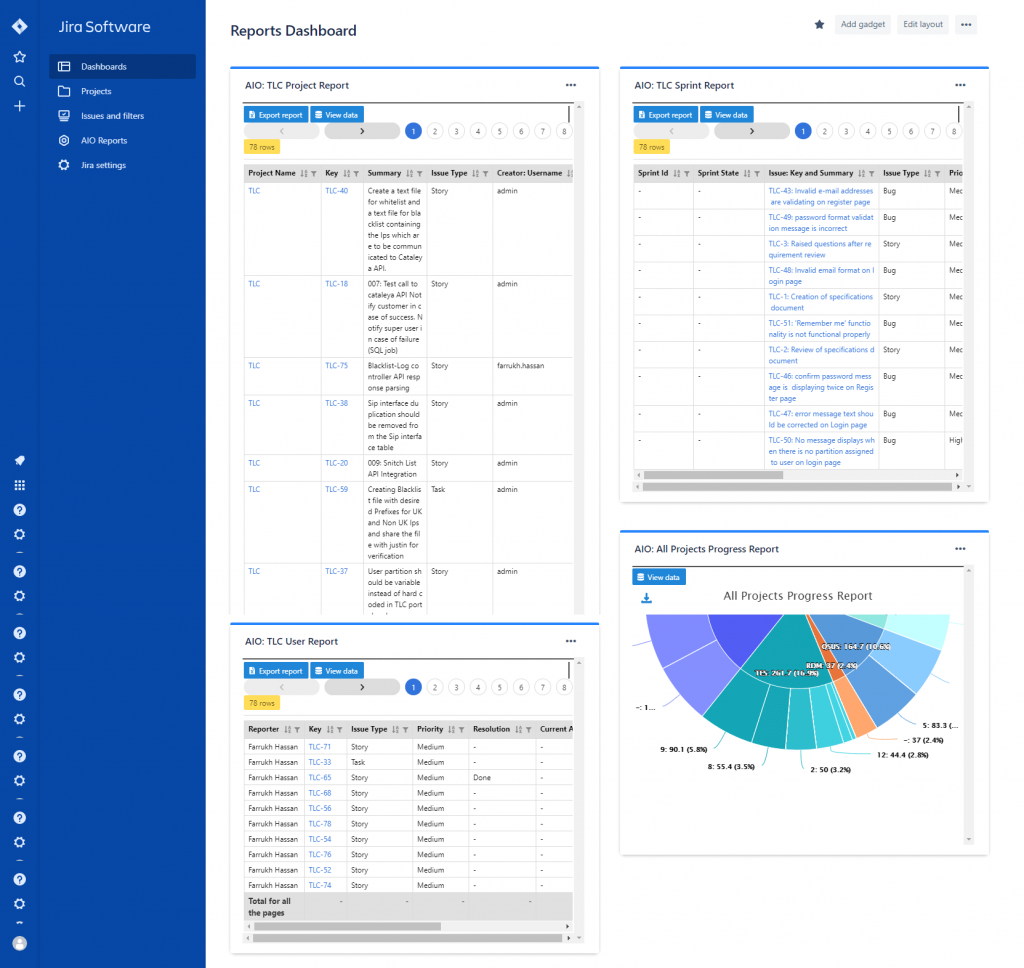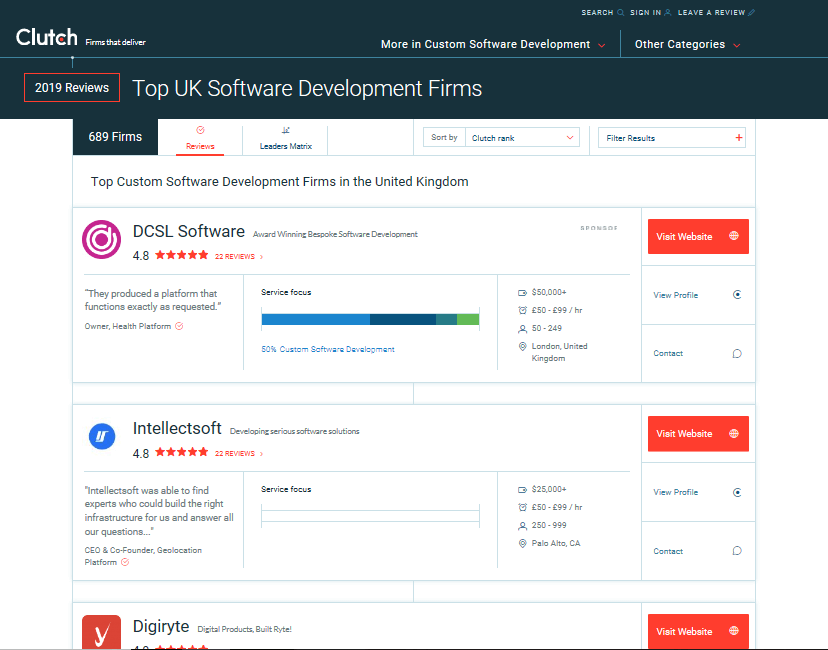How to Choose the Right Bespoke Software Company in 2019
What to do when choosing the right software company: define your objectives, look at the company's area of experience etc.
The UK’s software industry is booming.
According to Tech Nation’s Report 2018, the UK has secured itself as one of the global technology leaders, with the tech sector growing 2.6 times faster than its overall economy. Matt Hancock, the UK’s Digital Secretary, referred to the local tech industry as “a hotbed of innovation, creativity, and entrepreneurial spirit.”
As more software development companies establish their foothold, they induce benefits such as employment, investment, and leading-edge technology. While this is welcoming news, the task to find the most befitting software company to develop your software, from an increasingly large pool of options, is challenging.
Your choice will impact your company’s performance and bottom line. Hence, it is imperative to lay down a few ground rules before entering into a partnership with a bespoke software company.
Before making a decision, ask yourself the following questions:
- What are the objectives and budget requirements of your project?
- What is the software company’s area of expertise?
- What tools and technologies does the company work with?
- Can you find good reviews and referrals?
- Where is the software company located?
1. What are the objectives and budget requirements of your project?
Setting the specifications and objectives of the project early on will aid you in choosing the right software company. Carefully analyse the size of the project, set a forecasted timeline and make a pro forma budget.
Conducting a financial needs assessment does not imply that you hire the cheapest company to do the job. Instead, conceptualising budget requirements well before time helps you explore investment options – whether you should internally finance the project or use external sources. Furthermore, the size and projected time of the project can help you plan the size of the team, level of involvement and set a definite time of completion.
Once you have laid down a plan, shortlist possible companies that best suit your project requirements. Share your objectives and what you expect out of the partnership. This will not just help you, but the software company as well. They will make a detailed project proposal based on project requirements.
The table below shows an example of a cost estimate overview after requirements have been carefully analysed.

Key takeaway: Set project requirements, shortlist possible partners, and match your requirements with their proposal.
2. What is the software company’s area of expertise?
Another important criterion for choosing the right partner from a group of potential companies is analysing their area of expertise. If you require the development of an e-commerce website, you should choose a software company that specialises in designing e-commerce websites and has similar clients.
This will guarantee quality as you will be working with experts in the field. Always ask for current project portfolios. Having done similar projects will build their credibility and strengthen your trust in them. Plus, analysing their portfolios, documents and client dealings are a great way to gauge their professionalism and whether their work ethics match yours.
Key takeaway: Choose a software company that are professionals in the field.
Quick Tip! A good UX design team is an absolute necessity, so choose your partner wisely!
By checking this box, you confirm that you have read and are agreeing to our Privacy Policy.
3. What tools and technologies does the company use?
Which programming languages does the software company work with? Does it specialise in a particular language or claim to be the best in all languages out there? These aspects are important to consider since they impact product quality.
It is better to hire a company that specialises in one or two languages – especially if it is a small or medium sized company. This indicates that they have dedicated professionals who focus on delivering quality services to their clients.
Another question you may ask is what project management tools (TFS, Trello, Jira, Asana, etc.) they use to share information with their clients, if any. Do they comply with what you use? It is important to acquaint yourself with these questions before choosing your partner, especially if you are looking for a long-term relationship.
The table below shows a daily manual report when you adopt Agile.

The screenshot below displays the Reports Dashboard in Jira – showing the Project Report, Sprint Report and User Report.

Lastly, if your project is prone to frequent changes, choose an agile software development company. Why so? Because it is easier to incorporate changes during product development for bespoke companies if they are using the Agile methodology. If you prefer fixed price projects, consider companies that have incorporated the Waterfall model. It all comes down to which method addresses your project needs best.
Key takeaway: Work with a company that specialises in the preferred programming language, uses project management and report making tools, and keeps you updated throughout the project. Make sure your project requirements are being appropriately met.
4. Can you find good reviews and referrals?
Always ask for testimonials or customer references. This gives you an opportunity to talk to existing customers who can share their experience, whether they are satisfied with the company’s performance and the product delivered.

[cta_blog_inner]
Read online reviews from trusted sites, look for rankings and ratings, and see whether the company has received any awards for their work. Are they members of reputable organisations?

Positive opinions increase credibility. Work with companies with a good reputation, discount those that are sub-par.
Here are the UK’s top software development firms, according to Clutch.

Key takeaway: Before making a decision, always read online reviews, customer references, and testimonials on the company’s website.
5. Where is the software company located?
Location, location, location.
Before entering into a partnership, it is a good idea to consider where the software company is located. Is it near your place of business? If the labour is outsourced, do different time zones allow easy communication? Are there any language or cultural barriers? What currency do they deal in?
If you prefer to have a hands-on experience in the project, it may be a better idea to have the software company geographically near you. You can make frequent visits and regularly contribute, in person, rather than dropping an email or attending online conference calls.
Many bespoke companies, however, are increasingly outsourcing labour in search of skilled developers. If you are comfortable with this, partner-up with companies that have outsourced developers – this may prove to be a competitive advantage for your business. Outsourcing is a cost-effective option and also addresses the shortage of skilled labour the UK is currently facing in this field.
Key takeaway: Choose a software company based on your geographical preference.
Quick Tip! If you’re looking for a cost-effective solution without compromising on quality, consider hiring a company that has outsourced its software team.
Choose the right bespoke software company
From setting up project requirements to shortlisting possible companies and conducting a detailed analysis, choosing the right software development company to partner-up with is vital for your project’s success.
So, don’t just dive into the water head first. You might end-up swimming with the sharks.
Ask yourself these critical questions and avoid possible associated risks with choosing the right partner. Get the best bespoke software your money can buy.





